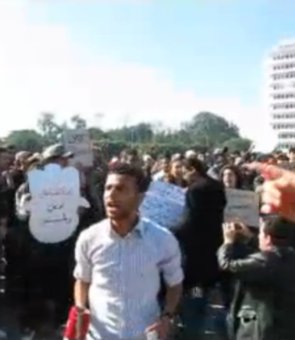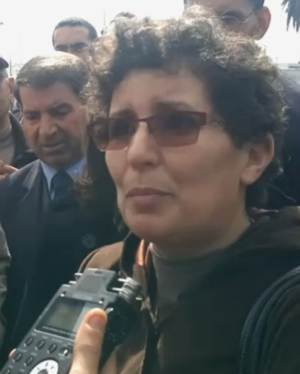|
Morocco Politics | Human rights Mostly peaceful protests in Morocco today
After the large Moroccan protests last Sunday, where 5 persons were killed and 138 injured, the 20 February movement had called for new protest marches today and tomorrow. Especially the Moroccan human rights association AMDH, which saw its leaders beaten last Sunday, had urged for renewed protests.
Protesters in Rabat were almost outnumbered by police. "One police officers filmed the demonstrators with a camera," the 'Yabiladi' journalist in the capital reported Other rallies were reported from Al-Hoceima, where five persons had been killed on Sunday, and in Mohammedia and Agadir, where some hundred protesters had gathered. The rallies in Al-Hoceima and Agadir were dispersed by the police, according to protester sources. In Agadir, unconfirmed clashes reportedly have led to the hospitalisation of three protesters. In Al-Hoceima, police reportedly attacked protesters with batons. In Casablanca, Rabat and Al-Hoceima, protesters announced greater protest marches for tomorrow. In Marrakech, Tangier and several other cities where there were no protests today, marches are also planned for tomorrow. Organisers today indeed announced that protests would be held every Sunday from now on. Organisers, especially in Rabat, seemed somewhat disappointed by the low turnout of protesters, but hold that they have been prevented from spreading their message. They are expecting much larger crowds tomorrow, Sunday, however. By staff writers © afrol News - Create an e-mail alert for Morocco news - Create an e-mail alert for Politics news - Create an e-mail alert for Human rights news
On the Afrol News front page now
|
front page
| news
| countries
| archive
| currencies
| news alerts login
| about afrol News
| contact
| advertise
| español
©
afrol News.
Reproducing or buying afrol News' articles.
You can contact us at mail@afrol.com









